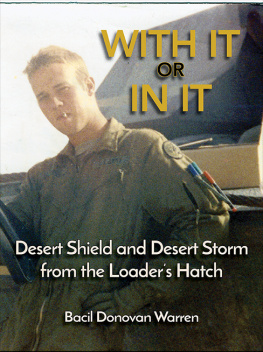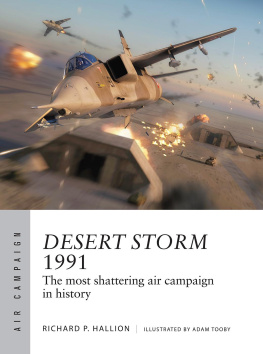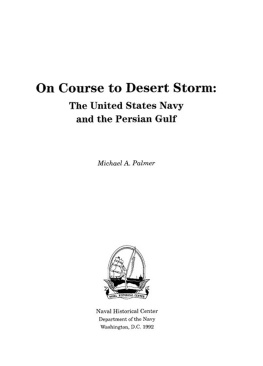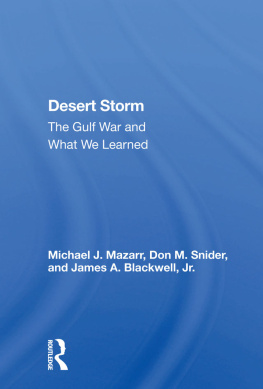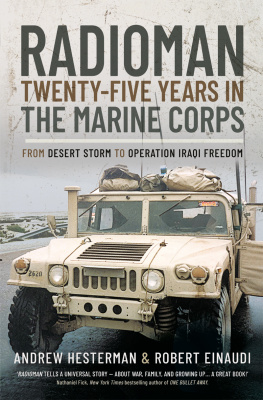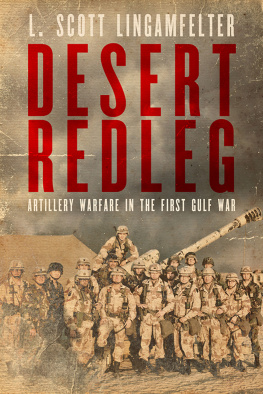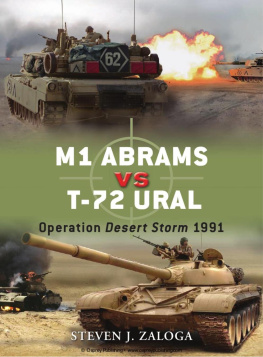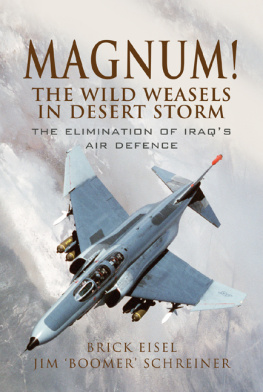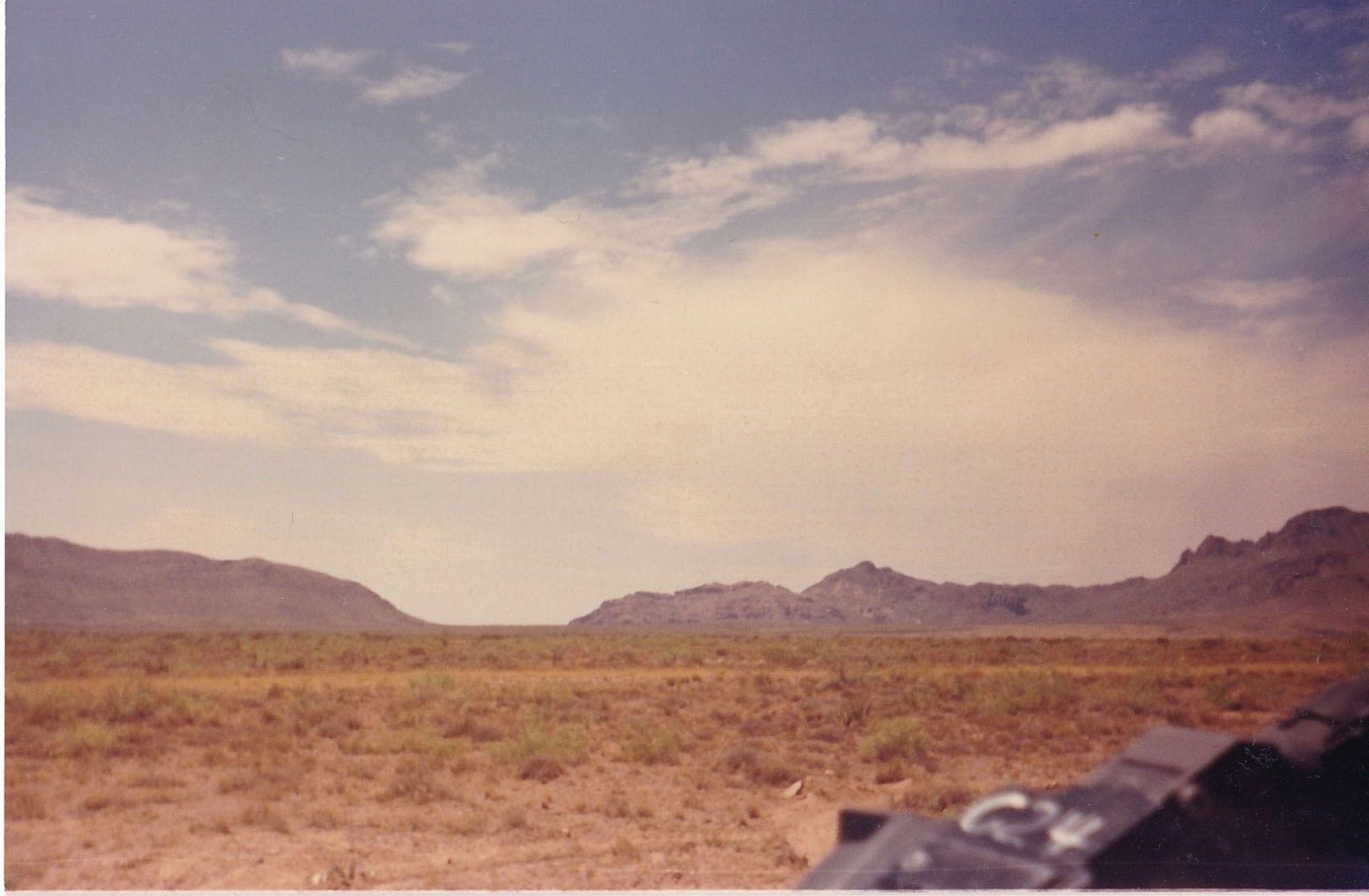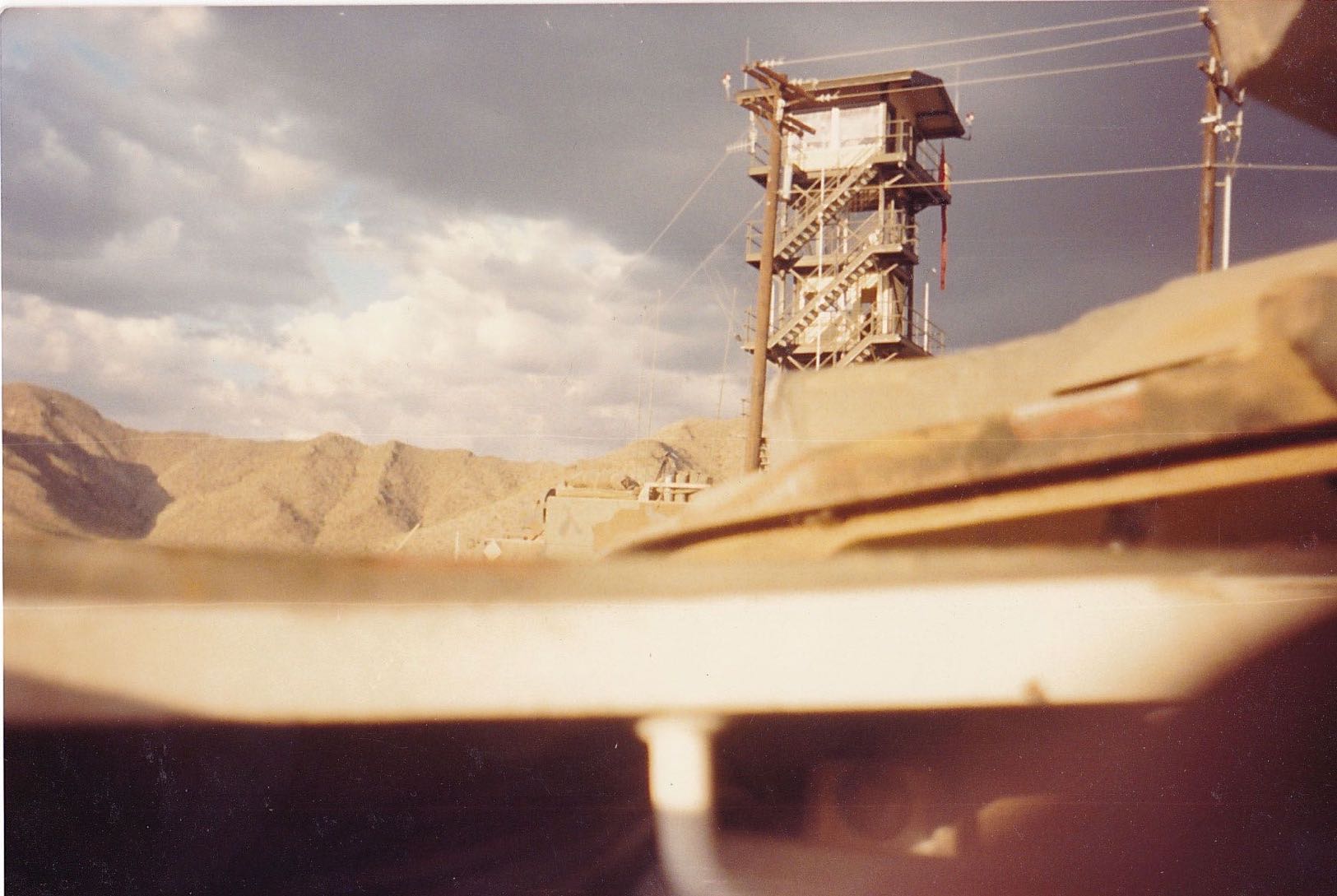All rights reserved. This book or any portion thereof may not be reproduced or used in any manner whatsoever without the express written permission of the publisher except for the use of brief quotations in a book review.
SHOCK AND REALIZATION
August First, Nineteen Ninety. Approximately Seventeen-Thirty hours local time, Mountain Daylight, on the back line of a Tank gunnery range in Doa Ana, New Mexico.
At the time, I was a SPC (Specialist, enlisted rank E-4), technically assigned as the Gunner on C-66the tank of the Troop commanderin C (Cyclone) Troop of the US Army's 1st Squadron, 3d ACR (Armored Cavalry Regiment): the Brave Rifles. We had just returned to Ft. Bliss, Texas, from an extended TDY (Temporary DutY) deployment to Ft. Hunter-Ligget in central California. Now, much of my Troop, as well as A (Apache) and B (Bandit) Troops and D (Dragon) Company, were split up to cross-fillthat is, to temporarily fill in on another units tank, to bring their crew up to a full four members for a training exercisefor 2nd and 3d Squadron units preparing to deploy to the NTC (National Training Center) at Ft. Irwin, California.
In the approximately fourteen months that I'd been assigned to C-1/3ACR, I think we'd spent about ten and a half of it in the field. With all our field training, I hardly knew my barracks room (though, I knew how to get back to it from Juarez after a night of drinking). I definitely didnt know the girl Id been seeing very well, as it turns out shed been sleeping with several other soldiers from the base, something I only found out after getting back from TDY. And in a plot twist Id only ever seen in pulp fiction, I was assigned to cross-fill as a Loader on a tank where the Gunner was one of the soldiers with whom shed been cheating on me.
I knew Doa Ana range pretty well, though, and I knew that if you tuned the Auxiliary radio (Aux) over to the extreme low end of the frequency range, you could pick up the local TV channel 13 audio transmission, and it was time for the national news. We were waiting for sunset, which in this part of the desert sometimes doesn't come until about 20:00 hours (8 PM), and the chow truck had just pulled up, so I knew we'd have a few minutes to relax.
Doa Ana Range, NM, part of Ft. Bliss. This would be your view if you were looking off the left side of the turret from the Loader's hatch of an M1A1 tank. And it happened to be sometime in 1990.
As I fine-tuned the Aux and pulled in the transmission, the Gunner stuck his head into my loader's hatch.
"Warren, pull that speaker out will ya?"
There's an attachment for a field phone to the radio system in the M1A1 tank, and it can be wired for all kinds of sound output devices, including headphones, speakers, and others. I pulled out the field speaker and wired it up, then passed it up so he could set it on the top of the turret so that the whole platoon could listen to the news.
That night's lead story might not have engendered much discussion, most of the time: one nation in the Middle East had a dispute with another, and their dispute led to conflict. That kind of stuff happened all the time, it seemed. It was about Iraq invading Kuwait: a small, C-shaped, oil-rich Arab nation, situated on the eastern side of the Arabian Peninsula between Iraq and Saudi Arabia. At the time, I could have told you where it was, and really not much else. Iraq seemed to think that Kuwait was illegally drilling for oil in Iraqi territory, and was overproducing their quota of oil in general, and felt the only way to solve the problem was to invade and take over.
Really, what the story was about was that all of our lives had just taken a turn for the surrealwith my apologies to CPT Miller, from Saving Private Ryan, for stealing his line. Something was different. We all felt it immediately, as evidenced by the stunned silence from the rest of the soldiers gathered around our turret. I immediately knew what it meant, and thought to myself "we are going to end up over there because of this idiotic invasion. I didn't mean to think it with my moutha somewhat frequent affliction I suffered frombut I did and got an immediate nod of agreement from the Platoon Sergeant.
Not five minutes later, it was our tank's turn to rotate over to the chow truck. Unsurprisingly, it was T-Rations. The T-Ration is a field ration the Army frequently feeds to soldiers in the field and consists of large sealed trays (hence, T) of food heated by immersion in hot water, one of the B Rations. As opposed to, say, A Rations, which are rations that contain ingredients that are fresh, frozen, and/or refrigerated, or MREs, which are the Meal Ready to Eat rations issued to soldiers individually and require no prep. The B Ration contains ingredients that are canned and/or freeze-dried, with no fresh, frozen, or refrigerated items, but that require preparation by a field kitchen for service. I don't remember the main meal but I am pretty sure the starch side was scalloped potatoes. We geared up and waddled over, grabbed chow, and sauntered back to the tank. In the field, M1 tank crews often consume their meals on the front slope of the tank, and tonight's was no different ... except that no one was chatting. There was no BS-ing, no complaining about the quality of the food, no good-natured ribbing one another about the ugliness of the other's sister or whether or not she was good in bed. In fact, there was a lot of silence. A lot of sounds of eating, some shuffling of feet on rocky dirt, and the speaker on the turret, nattering on about the baseball scores with nobody much paying attention.
That's how you knew when you had a tanker's attention. Not when they were rapt to your words, not when they were in formation following you with their eyes, as these are things all soldiers are trained to do. It is when they are standing around, milling about, but nobody was saying anything. It was right at about the end of evening nautical twilight when there is just a ribbon of silver light on the horizon and dark, dark blue to black above it when the loudspeaker on top of the Range Control Tower sparked to life:
Guidons, guidons, guidons. Be advised that at approximately Sixteen Hundred hours Mountain Daylight Time tonight, the nation of Iraq invaded Kuwait in an unprovoked act of aggression. All units are ordered to stand down from training and await further orders, out.
Guidons was radio-speak for All units on this frequency and when repeated like that, also substituted for the phrase FLASH which means all units be silent and listen for important traffic.
With that, we refocused on offloading the ammunition in the tanks and then did a road march back to the motor pool. We spent the night in the barracks at the range. First thing in the morning we assisted with getting the tanks ready to head back to Ft. Bliss. Then we mounted the trucks the Regiment sent for those of us who were cross-filled to begin the trip back to Ft. Bliss and our original units.
From the Driver's hatch of an M1A1 tank, looking up at C-92 on one of the tank gunnery ranges. Doa Ana, NM, part of Ft. Bliss.
TRANSITION TO WAR
Coming back to Ft. Bliss after having been unassigned from our cross-fill duties, we weren't absolutely sure what was next. We did feel reasonably confident that we were being re-tasked for a deployment to the Middle East. As a result, the next few weeks proceeded as an orgy of changes. For most of the three or four decades prior to Iraqs invasion of Kuwait the 3d ACR along with all of III Corps had been preparing, training, and planning forand stood ready to executea REFORGER mission (REturn of FORces to GERmany) with a specific focus of reinforcing the US Army Europe in the event of a Warsaw Pact invasion of central Europe. That alone required the Brave Rifles to completely shift gears, since it was not the grassy plains of Northern Germany nor the thickly forested Bavarian and Hessian hills and mountain ranges and valleys of the Fulda Gap, but the vast emptiness of the Arabian desert that would see the first combat deployment for the Regiment since WW II. Not that we were unfamiliar with desert warfare. We were stationed at Ft. Bliss, TX, in El Paso and did all of our local training either in the desert surrounding the base or in Doa Ana, NM, only a few miles away. We also did rotations to the National Training Center at Ft. Irwin, CA which is an even more unforgiving desert than that found near El Paso, and is actually pretty similar to some parts of the Arabian Peninsula in its geography: lots of sand and rocks, long stretches of flatness interrupted with stretches of rocks and sand.

